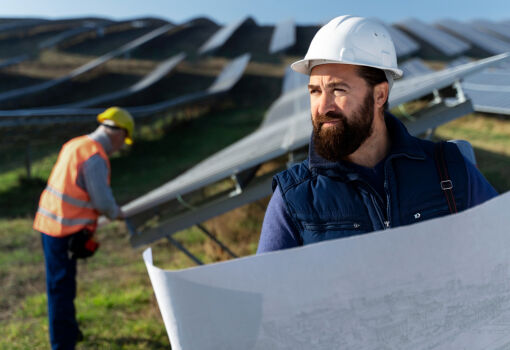
Marin Ciobanu
Why this is happening and what measures the new Moldovan government should take to make the country more attractive for investors, we talk to Marina Ciobanu, the chief administrator of the FEZ “Balti”, which is rightly considered the most successful structure for attracting investors to the Moldovan economy. And thus we continue the topic outlined in the previous Logos Press publication.
LP: – Mr. Ciobanu, at the recent presentation of the results of FEZ “Balti” activity you said that during the period 2010-2020 Moldova lost at least 16 large investment projects with possible investments worth hundreds of millions of euros, which could have created at least 20 thousand new jobs and started the production of industrial goods with high added value, which are completely new for our country and oriented to export. What was the main reason for this?
– It pains me to talk about it, because these are projects that could have brought Moldova not only investments and jobs, but also significantly improved the country’s image in the international arena. After all, among the companies that seriously considered the possibility to open their enterprises in Moldova, there are such world-famous brands as Austrian Bosch, American Lear Corporation, Japanese Mitsubishi, South Korean Yura, Swiss Komax…. I am not talking about almost a dozen of serious corporations from Germany. After all, it is German enterprises that make up the backbone of investors in our free zone, who have reached Moldova following our anchor resident – the Draexlmaier company.
Why am I talking about the “geography” of failed projects? Because the example of Draexlmaier shows how the arrival of one solid investor in a country entails a chain of other investments from this country. Some people work “in tandem” with this company as a supplier or client, while others simply see that they have entered a new market and realize: if such a solid company has settled there, we should take a closer look. This is a very important psychological factor. Businesses all over the world are looking at where their money is flowing, where they feel more comfortable. And very often they are guided by the behavior of the big players.
And now I will try to answer the question why these projects did not take place in Moldova. If we talk about the main reason, it is, of course, bureaucracy. I am often disagreed with in the high offices of the government, but I work directly with investors. The advantage of free zones is that we, as the FEZ administration, take care of many issues related to approvals, obtaining various authorizations and permits, and other “routine” problems.
How should an investor react who is ready to invest tens of millions of dollars in the construction of a factory in Moldova, create hundreds of jobs, produce competitive products for export, but at the same time has to wait two years for a decision on the issue of transferring a plot of land from agricultural land to industrial construction? They work in many countries around the world and compare. We make a lot of efforts so that they come to Moldova, evaluate our opportunities and agree to invest here. And then there is such bureaucracy…. Naturally, not all investors agree to put up with such red tape and wait 2-3 years for elementary issues to be resolved, which in other countries take a few months at most.
LP: – Apart from bureaucracy, what else holds back investments in Moldova?
– The set of problematic factors for attracting FDI is well known: underdeveloped infrastructure, complicated logistics, lack of qualified middle-level personnel and labor resources in general, inconsistency of the educational process with modern requirements…. Recently, the problem of expensive energy resources has been added to them, which affects production costs and competitiveness of products.
The regional context is also very important – after all, we are competing with regional countries for investors’ attention. And we must have weighty trump cards for them to choose Moldova. But we have practically no such trump cards. If we take Romania, Hungary, Serbia, Macedonia – the countries that are our direct competitors for attracting FDI – they have all created much more attractive conditions for investors. We do not have such opportunities.
LP: – Is there a way out of this situation? We are about to have a new government, where should it start in order to stimulate the inflow of direct investment into the country?
– I will say a banal phrase: there is a way out of any situation. The main thing is to have the will to look for it. And the political will to do everything necessary to improve the investment climate and work effectively with potential investors.
The new government must first of all realize a simple truth: if we really want to pull the country out of poverty and contribute to Moldova’s economic prosperity, we must immediately and seriously address the issue of attracting investments and develop an effective mechanism of work in this direction.
We should not invent anything, but rely on the positive experience of our neighbors, who have already proved how effective and beneficial foreign investments can be for the country’s economy, if there is a strategic state approach to this issue.
Attracting investment is not the responsibility of the Investment Agency alone, but of every government official. At all levels – from ministers to local counselors in villages. The effectiveness of the work of each agency and each official should be evaluated according to the criteria of attracting investments. After all, it is well known that the chain of positive effects generated by FDI affects both the productive potential of the country and the labor market and social situation, contributing to the creation of new jobs, the growth of incomes and, consequently, stimulating economic growth. And this is relevant both on the scale of a country and of an individual locality.
Let us try to remember how many investors our embassies abroad have attracted to our country? Nothing comes to my mind. The question arises: what do we mean when we talk about economic diplomacy? How is the effectiveness of the work of these missions assessed?
And the same can be said about almost any ministry or agency. They are not responsible for the investment climate in the country, and their work is not assessed by these criteria. We are not talking about loans or grants for various projects – these are also investments, but they do not produce the effect we expect from direct investments.
Moreover, the mercantilism of many officials in these agencies and the very bureaucracy is a direct consequence of the fact that attracting investment is not included in the criteria for evaluating their work. Therefore, they often put their personal interests or bureaucratic nature above the interests of the state. The attitude of “whatever happens” still prevails over many government officials, and they act as the biggest brake on investment and progress of the country.

